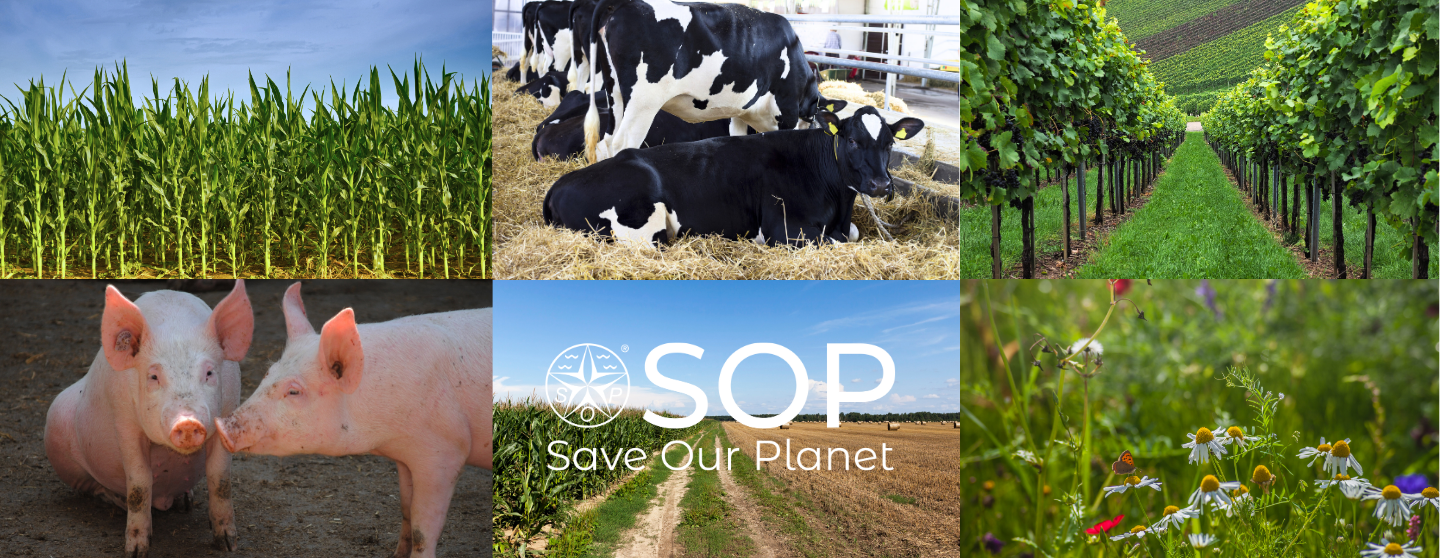

SOP Srl Società Benefit

Lombardy, Italy
November 2024
Chemicals & chemical products
Manufacturing
Austria,
Azerbaijan,
Brazil,
Canada,
Colombia,
Czech Republic,
Egypt,
Germany,
Hungary,
Italy,
Poland,
Portugal,
Slovenia,
United Kingdom,
United States
Since 2001, SOP has been helping farmers to improve the efficiency of their production, both in terms of quality and quantity, whilst, at the same time, drastically mitigating the impact of their activities on climate and environment. Its naturally based products allow the farmers to displace the use of synthetic fertilizers, to improve the well being, the adaptation capacity, and the productivity of the animals, to reduce the emissions of odors, ammonia, and GHGs from farms. SOP invests a significant share of its revenue in research, and the effectiveness of its products has been demonstrated over the years through numerous peer-reviewed scientific articles. This provides all stakeholders in the agri-food sector with solutions to improve the environmental, social, and economic sustainability of primary food production, ensuring and fostering an inclusive, equitable, and regenerative economic system, where profit serves as a means to generate positive impact on society.
Overall B Impact Score
Governance 10.8
Governance evaluates a company's overall mission, engagement around its social/environmental impact, ethics, and transparency. This section also evaluates the ability of a company to protect their mission and formally consider stakeholders in decision making through their corporate structure (e.g. benefit corporation) or corporate governing documents.
What is this? A company with an Impact Business Model is intentionally designed to create a specific positive outcome for one of its stakeholders - such as workers, community, environment, or customers.
Workers 27.6
Workers evaluates a company’s contributions to its employees’ financial security, health & safety, wellness, career development, and engagement & satisfaction. In addition, this section recognizes business models designed to benefit workers, such as companies that are at least 40% owned by non-executive employees and those that have workforce development programs to support individuals with barriers to employment.
Community 16.6
Community evaluates a company’s engagement with and impact on the communities in which it operates, hires from, and sources from. Topics include diversity, equity & inclusion, economic impact, civic engagement, charitable giving, and supply chain management. In addition, this section recognizes business models that are designed to address specific community-oriented problems, such as poverty alleviation through fair trade sourcing or distribution via microenterprises, producer cooperative models, locally focused economic development, and formal charitable giving commitments.
Environment 22.6
Environment evaluates a company’s overall environmental management practices as well as its impact on the air, climate, water, land, and biodiversity. This includes the direct impact of a company’s operations and, when applicable its supply chain and distribution channels. This section also recognizes companies with environmentally innovative production processes and those that sell products or services that have a positive environmental impact. Some examples might include products and services that create renewable energy, reduce consumption or waste, conserve land or wildlife, provide less toxic alternatives to the market, or educate people about environmental problems.
Customers 4.7
Customers evaluates a company’s stewardship of its customers through the quality of its products and services, ethical marketing, data privacy and security, and feedback channels. In addition, this section recognizes products or services that are designed to address a particular social problem for or through its customers, such as health or educational products, arts & media products, serving underserved customers/clients, and services that improve the social impact of other businesses or organizations.